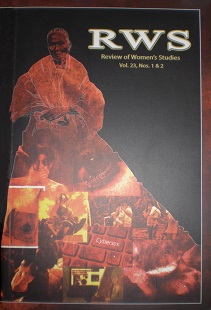Uncoerced Cybersex by Low-Income Women Using Information and Communication Technologies (ICTs)
Abstract
Given the dearth of above-subsistence economic opportunities in the Philippines, low-income women have turned to cybersex as a form of employment. The diffusion of information and communication technologies (ICTs) to urban and rural poor areas, and their accessibility, have made this possible.Information and Communication Technologies (ICTs) have entered the development discourse in the form of Information and Communication Technologies for Development (ICT4D). Using Amartya Sen's Capabilities Approach and the Liberal Feminist perspective, this paper presents the polemical possibility of considering uncoerced cybersex by low-income women as a case of Information and Communication Technology for Development (ICT4D). This is of course an ex post facto application, as there would be no purposive or planned ICT4D project for the purpose of promoting commercial cybersex.
In this paper, "uncoerced cybersex" is simply contradistinguished from cybersex that is performed as a result of "pressure, threats, intimidation, domination, or control" ("coerce," n.d.) by family members or other parties. It does not negate the structural inequalities of gender, class, race, and other intersectional identities that drive poor Filipino women into cybersex. At the same time, it recognizes that alternatives do exist, even if they are not as financially rewarding as cybersex, and millions of low-income women in other forms informal economy employment in the Philippines are testaments to this. The research subject chose cybersex over these alternatives.
Published
2023-05-10
How to Cite
VERCELES, Nathalie A..
Uncoerced Cybersex by Low-Income Women Using Information and Communication Technologies (ICTs).
Review of Women's Studies, [S.l.], v. 23, n. 1-2, may 2023.
ISSN 0117-9489. Available at: <https://journals.upd.edu.ph/index.php/rws/article/view/9023>. Date accessed: 04 aug. 2025.


